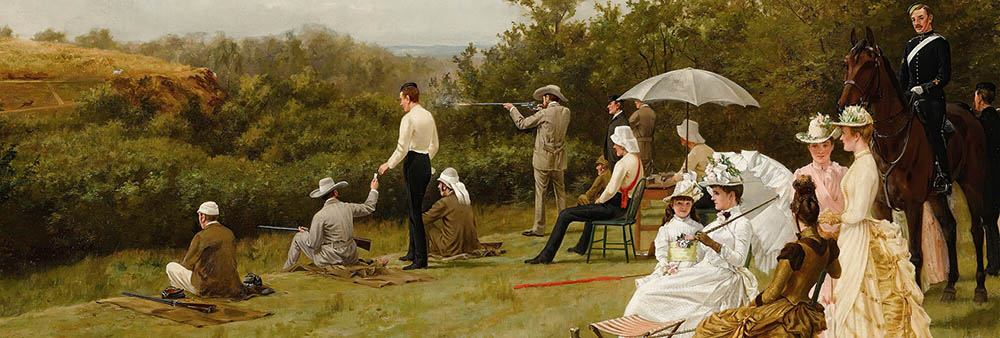In Defense of the Non-Moral
A part of me wishes that being good at something were the same as being good. That part views the gap between skill and virtue as a regrettable fact of life: “If only my commitment to practicing the piano—by itself—would transform me into a saint.” A larger part, however, sees the split as something delicious, an aspect of existence to be savored, a sign that reality is so overflowing with so many types of goodness that they cannot all be contained within the narrow strictures of a single value hierarchy.
A subtle genius, living and organic, animates the English language. We say, “He is good at chess,” and we say, “He is a good person.” We say, “Try to be good,” and we say, “I am not so good at math.” the simple nuance in the language, covered by just a few syllables, signals both a distinction and a deeper unity. We maintain the distinction because we know from experience that there are many people who are very adept in many things who nevertheless turn out to be scoundrels, and conversely, we know that a profound moral purity shines out from many who are extremely limited in their abilities. Nevertheless, both expressions rightly utilize the most important word in any language—the word for Goodness—and this usage is not a mere equivocation, as though “good” were a homophone.
Students of Plato and Aristotle will remember a similar nuance in Greek. The word that we often translate as “virtue” (arete) is widely used in contexts where it means “excellence” or “skill.” Hence, the arete of a good knife is its keen edge, and the arete of a wrestler is his strength and skill. It is tempting to tell students, “Well, moral virtue is one thing and skill at wrestling is something else; Greek just uses the same word.” But this isn’t quite right. There really is a common quality, hard to specify, between the moral arete of the honest man and the athletic arete of the wrestler. Both have embraced a kind of contest or struggle (an agon) because they are responding to a vision of something intrinsically choice-worthy. Both have come to embody within themselves a growing imitation of what they have seen. Both have left the level, crowded path of mediocrity and have taken a narrow road up into the mountains, the end of which has never been found by mortal men.
A certain kind of moralistic mother tries to motivate her children by appealing to their improvement in virtue. “Remember to practice your violin, Johnny; it builds character.” “Dress for school, Johnny; it builds character.” “Write your essay, Johnny; it builds character.” Even as a child, I found such exhortations strange, as though violin, writing, and style need to justify themselves by something other than violin, writing, and style. Like utilitarianism, such justifications always look beyond the valuable thing itself to some other thing as a consequence. At its worst, such thinking narrows our perception of goodness down to just one kind of goodness, making us incapable of seeing that anything else is good unless we can provide some rationale in terms of the one favored category. I am grateful that my own parents did not inculcate in me such a moralizing utilitarianism.

One frequently hears the refrain in classical education circles that everything we are doing at a classical school is aimed at growth in virtue. This sentiment is even baked into the mottoes of many schools, written in big serif letters on their banner. Sometimes, the sentiment is framed as a mere overstatement or bending of the truth. Sometimes, it’s a flat lie.
Of course we aim at virtue, and of course the pursuit of virtue should take pride of place in everything we do. But the truth is that we should also educate our children in non-moral excellencies that are intrinsically valuable and choice-worthy for their own sake. It is simply a beautiful thing to learn history whether or not it makes you a better person morally.
I teach Latin, not primarily because I think it will train diligence or self-sacrifice into my students, but because I think it will improve their Latin. As a classicist who knows other classicists, I can assure you that ability in Latin is entirely compatible with moral turpitude. (But at least I know the meaning of the word “turpitude.”) I hear that Latin students have excellent test scores on the LSAT and MCAT, but this information is immaterial to me. I would still teach Latin even if someone gave me proof that Latin students perform poorly. I would continue because I believe that an education in Latin, a first-hand acquaintance with the whole literary culture from republican Rome to renaissance humanism, is an extremely valuable thing in itself. The same logic answers the moral consequentialism of those who (dubiously) think that Latin students are more likely than other kinds of students to grow in moral virtues.
Despite my reveling in the rich variety of goodness, I must put one word in on the side of specifically moral goodness. Moral goodness trumps. That is to say, moral goodness always wins out—or ought to win out—whenever it comes down to a basic choice between moral goodness and any other kind of goodness. Moral goodness has a claim upon our duty that other kinds of goodness do not. I have no obligation to become a painter, but I absolutely must be honest. But do not let this primacy of the moral keep you from seeing the abundant, variegated loveliness of the rest.
